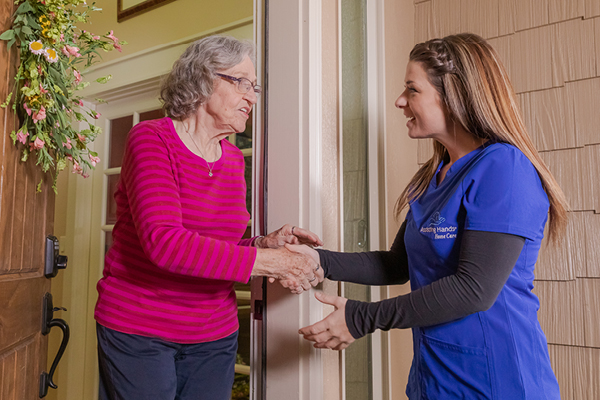
As we age, we face a unique set of challenges linked to our advancing years. Seniors, who once thrived on their independence and vibrancy, may begin to experience increased levels of stress or fear over aspects of daily life that once seemed trivial or manageable. These fears can range from concerns about health and mobility to anxiety over financial security or the ability to maintain social connections.
Recognizing these challenges, it’s essential to provide support and develop strategies to help seniors manage these prevalent fears, ensuring they can lead fulfilling lives even as they navigate these issues.
1. Running Out of Money
Once seniors turn 55, lifestyle changes are likely to occur and provoke stress or fear. Retiring, for instance, may cause financial angst in some seniors, as they worry about not having enough money. Running short of funds is a common fear among the aging population.
Family members are advised to gradually broach the difficult topic of finances with elderly loved ones. Reassure financial security by creating a detailed budget for expenses, like food, housing, hobbies, and travel. Include an emergency fund for home repair or medical care.
2. Loss of Loved Ones
Seniors are more likely to experience the loss of relationships as a spouse, relatives, or friends pass on. Losing people who are close to them causes seniors more worry than imagining their own passing. The resulting stress can lead to other emotional responses, such as depression, anxiety, and forgetfulness.
Ease the senior’s worries by openly discussing the possibilities of the future. Let the senior know the contents of a will or a living will, especially regarding how assets should be distributed and how to handle last wishes in the event of incapacitation.
3. Ill Health
While age is not an instant cause of worsened health, 91 percent of seniors suffer from one or more chronic conditions. Older people commonly express fears about losing their cognitive or physical well-being. Seniors worry about the possibility of memory loss, dementia, physical weakness, and frailty.
As physical limitations increase, more than half of all seniors will rely on family and friends for support. About one third use paid elder care services. Prepare for the road ahead by determining current and future care needs. Make plans to utilize home care agencies or help from relatives.
Now is the best time for the senior to begin an exercise regimen. Maintaining optimum physical health is key to warding off illness. A healthy lifestyle is also useful in reducing an individual’s stress levels. Seniors who feel unsteady during exercise may rely on a caregiver for extra support.
4. Loss of Independence
A sense of independence is cherished by people of all ages, and seniors are no different. As age gradually prevents seniors from independently performing routine household tasks, for instance, it is important for family members to help them reassert their independence.
Offer gift certificates for yardwork, household chores, or other duties that the senior may no longer be able to complete on her own. Rather than demand, family members are advised to ask, for example, if the senior needs help with changing the lightbulb.
Discuss future plans for living at home, especially since aging in place requires a certain level of independent functioning. A senior who wishes to age in the comfort and familiarity of home may hire a professional caregiver for daily assistance with routine tasks.
5. Inability to Handle Activities of Daily Living (ADLs)
As seniors get older, they may lose their ability to handle activities of daily living (ADLs) like they used to such as bathing, dressing, grooming, toileting, eating, and transferring. Losing the ability to manage ADLs can be terrifying for seniors as this can make them feel like they can no longer care for themselves in general.
One way you can help lessen this fear in your senior loved ones is to encourage them to stay physically and mentally active. Light exercises can help them maintain their strength and mobility which will make them less dependent on others to care for themselves. There are also a number of activities that can help keep their minds engaged and active such as crossword and sudoku puzzles, reading, and engaging in their favorite hobbies.
Make sure your senior loved ones continue to handle as much of their self-care as possible, even if certain activities take longer than before. You should also help them understand that losing the ability to care for themselves is a normal part of aging and discuss possible solutions such as home care or a senior care facility.
6. Inability to Drive
Along with a loss of independence is the inability to continue driving. The poor vision, slower reflexes, and loss of hearing that accompany age cause many seniors to be reluctant or unable to drive. Seniors resort to relying on family, friends, or caregivers for reliable transportation.
Shuttles designated for seniors may be locally available to transport them to recreational activities, shopping centers, or appointments. Transportation is a core duty of companion caregivers. When family members are unable to drive the senior, professional caregivers are ready and willing.
7. Isolation and Loneliness
A senior’s social outlets may be reduced as close friends and family pass away. Being unable to drive also heightens fears of loneliness and isolation. Remaining alone for extended periods of time causes a senior to feel unwanted. Making close friends as an older person is also challenging.
Companion caregivers are the answer to this common fear. Caregiving professionals build fulfilling relationships with care recipients, initiating conversations and recreation. Caregivers will also drive the aging adult to nearby senior centers for afternoons of cards or local day trips with peers.
8. Unable to Live at Home
By the time adults reach retirement, they have likely been living in their home for many years. The home is a safe space and familiar environment that seniors have spent much of their adult lives working for and if they raised their children in the home, then it is a part of them and their families as well. This can make the idea of giving up the home very difficult for seniors.
If your senior loved ones are worried that they may one day have to give up their home, you can help alleviate their fear by talking to them about their options should they have to leave their home. Options to discuss include downsizing to a smaller space, moving to a senior community or assisted living apartments, or hiring a home caregiver to help around the house. When discussing these options with your loved ones, listen to what they have to say and take their opinions into account when making a plan for the future.
9. Strangers in the Home
Seniors commonly fear new caregivers in their homes. It is normal for feelings of discomfort to arise, especially when a stranger provides intimate care. Older adults may have to rely on professional caregivers when family members are unavailable to provide in-home support.
Ease fears of new professionals in the home by carefully vetting a potential caregiver. Utilize a reputable home care agency for caregiving options. Licensed home care agencies perform full background checks on their caregiving professionals; agency caregivers are also insured and bonded.
Remember that a person who possesses all the qualifications may not be compatible with the senior’s personality. Remain present for the first few days the professional caregiver is on duty or until the senior becomes comfortable with being alone with the professional.
Senior Home Care from Assisting Hands

As seniors age, the challenge of living independently at home can increase, making daily tasks and personal care difficult. Working with an elder care agency, such as Assisting Hands Home Care, early in the aging journey can greatly benefit seniors. It allows them to gradually adjust to and feel comfortable with the idea of receiving care at home. This proactive approach also ensures that seniors receive the appropriate level of assistance as their needs evolve, covering everything from basic household chores to more personal care needs. By introducing care services early, seniors can maintain their independence and quality of life for as long as possible, while also providing peace of mind to their families.
Assisting Hands Home Care offers a broad range of senior care services, designed to support the elderly in their daily lives. Our caregiving responsibilities include personal care assistance, transportation services, meal preparation, light housekeeping, and fall prevention measures. Beyond the essentials, we provide invaluable companionship, serving as a supportive social network for seniors in need.
Your loved one will quickly come to regard our companion caregivers as friends, forging strong bonds through daily interaction. While addressing the routine, non-medical needs of seniors, our caregivers also engage in meaningful conversation and encourage the pursuit of enjoyable hobbies, enriching the lives of those we care for.
Families with elderly loved ones living in Coppell, TX | Dallas, TX | Highland Park, TX | Richardson, TX | University Park, TX are encouraged to consult Assisting Hands Home Care for the most compassionate home care services in the community. Our team is dedicated to improving the daily lives of seniors and ensuring each day is a fulfilling one. Call us at (214) 760-6944 to talk to one of our care managers today.







